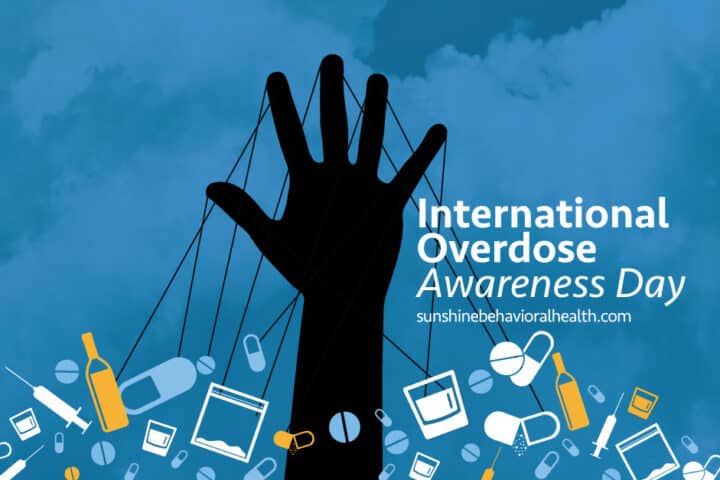
International Overdose Awareness Day
“International Overdose Awareness Day is a global event held on 31 August each year that aims to raise awareness of overdose and reduce the stigma of drug-related death,” according to the Penington Institute, the Australian nonprofit organization that coordinates the event.
Providing educational resources is a major way to raise awareness and reduce stigma. If people don’t know about addiction or overdoses, they may find it harder to recognize or treat them. If they don’t know anyone with alcohol or drug problems, they may find it easier to stigmatize these conditions.
Paying tribute to loved ones
There are so many people with such conditions. The International Overdose Awareness Day website features a page that allows people to post tributes to loved ones who have died from overdoses.
The page includes dozens of posts where people describe the grief of losing children, partners, siblings, nieces, nephews, parents, and friends.
Such tributes show how overdoses aren’t some vague conditions that happen to people we don’t know. They’re very real problems of real people, problems that create grief and other lasting conditions that can continue for a very long time, even lifetimes.
Tributes on the page also illustrate how overdoses aren’t punishments for bad behavior or bad people. Substance misuse and addiction can happen to anyone. For example, people might hurt themselves or undergo surgery, so their doctors or dentists prescribe medications to ease their pain.
Some medications (including some drugs that relieve pain) are more addictive than others. Due to mental, genetic, or environmental factors, some people may be more susceptible to addiction. If susceptible people are prescribed addictive drugs, they may become addicted to the substances.
People who also struggle with anxiety, depression, or an eating disorder may also find that the drugs they’re using for pain may also temporarily ease their mental anguish. They might use drugs intended to treat physical pain to treat their emotional pain.
Regardless of why people use drugs or alcohol, many people do. In the United States, 3.6 percent of the population reported that they misused pain relieving drugs in the 2018 National Survey on Drug Use and Health.
If you add that figure to the number of U.S. residents misusing illegal drugs and the people misusing various drugs in other countries, it means that millions of people are at risk of overdoses and other serious drug-related consequences.
Applying our knowledge
Knowing what drugs can do and how people can become addicted might be useful. We could have a loved one who has been injured or has undergone surgery and isn’t acting like himself or herself. Armed with a little knowledge, we might be able to determine if this person has become hooked on pain medication or similar drugs.
Spotting substance misuse or addiction early can help arrest them before they becomes worse. Such information could help us proceed with knowledge instead of operating based on fear and emotion.
Of course, knowledge may not eliminate fear entirely. Addiction is frightening and we might be scared for our loved ones. But it seems healthier to fear addictions, not the people with them.
Instead of stigmatizing and shaming people who have addictions, we can work with them to address their conditions.
International Overdose Awareness Day helps us remember the people we’ve lost and provides tools to help prevent losing any more.
Sources
overdoseday.com – International Overdose Awareness Day
overdoseday.com – Tributes
sunshinebehavioralhealth.com – Substance Abuse & Pain Management
medlineplus.gov – Drug Use and Addiction
samhsa.gov – Key Substance Use and Mental Health Indicators in the United States: iv Results from the 2018 National Survey on Drug Use and Health
A Message From Our CEO
Medical disclaimer:
Sunshine Behavioral Health strives to help people who are facing substance abuse, addiction, mental health disorders, or a combination of these conditions. It does this by providing compassionate care and evidence-based content that addresses health, treatment, and recovery.
Licensed medical professionals review material we publish on our site. The material is not a substitute for qualified medical diagnoses, treatment, or advice. It should not be used to replace the suggestions of your personal physician or other health care professionals.





